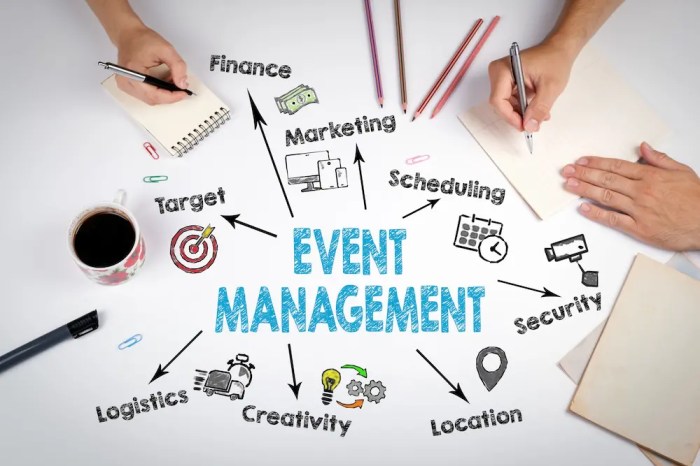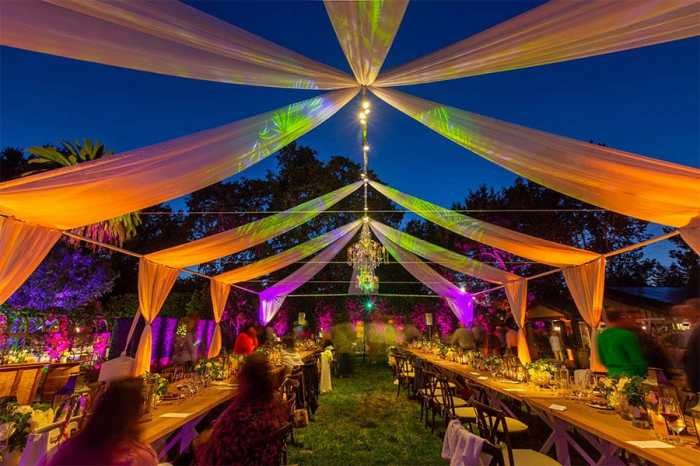Event Planning Tips: Ready to elevate your event game to the next level? Dive into our ultimate guide packed with expert advice and insider tips to ensure your events are a smashing success!
Importance of Event Planning
Planning an event is like plotting your path to success before you even take the first step. It sets the tone, creates the roadmap, and ensures that everything falls into place just the way you envisioned. Here’s why meticulous event planning is the key to hosting a successful event.
Ensures Smooth Execution
When every detail is carefully thought out and planned in advance, it minimizes the chances of unexpected surprises or hiccups during the event. From the venue selection to the program flow, a well-thought-out plan ensures that everything runs smoothly.
Maximizes Resources
Thorough event planning helps in optimizing available resources such as time, budget, and manpower. By having a clear plan in place, you can allocate resources effectively and make the most out of what you have, leading to a successful event without unnecessary wastage.
Creates Memorable Experiences
Events that are meticulously planned tend to leave a lasting impact on attendees. From engaging activities to seamless transitions, a well-executed plan can create a memorable experience that guests will cherish and talk about long after the event is over.
Examples of Success
Take, for example, the launch event of a popular tech company, where every aspect from the stage setup to the guest list was carefully curated to create a buzz in the industry. Another great example is a charity gala that raised a record-breaking amount due to meticulous planning and strategic execution.
Setting Objectives and Goals
Setting clear objectives and goals for an event is crucial for its success. These set the direction and purpose of the event, guiding all planning and execution efforts towards a common target.
Defining SMART Goals
- Specific: Clearly define what you want to achieve. For example, increasing attendance by 20% compared to last year’s event.
- Measurable: Establish metrics to track progress and determine success. This could include ticket sales, social media engagement, or participant feedback.
- Achievable: Ensure that the goals are realistic and attainable with the available resources and time frame.
- Relevant: Align the goals with the overall purpose of the event and the organization’s objectives.
- Time-bound: Set a deadline for when the goals should be achieved. This creates a sense of urgency and helps in planning the timeline.
Examples of Well-Defined Objectives
-
Example 1: Increase sponsorships by 30% for the upcoming charity gala by the end of the quarter.
-
Example 2: Enhance attendee satisfaction ratings to over 90% for the annual conference through improved session content and networking opportunities.
-
Example 3: Raise $50,000 in funds for the local community center renovation project during the fundraising event on May 15th.
Budgeting for Events

When it comes to event planning, budgeting is a crucial aspect that can make or break the success of your event. A well-thought-out budget helps you allocate resources effectively, avoid overspending, and ensure that you stay within your financial limits.
Importance of Budgeting in Event Planning
Creating a budget for your event is essential to ensure that you have a clear understanding of all the costs involved. It allows you to prioritize expenses, identify potential areas where costs can be cut, and make informed decisions throughout the planning process. Additionally, having a budget helps you track your expenses, stay organized, and prevent any last-minute surprises.
Tips for Creating a Comprehensive Event Budget
- Start by outlining all potential expenses, including venue rental, catering, decorations, entertainment, marketing, and staff costs.
- Research current market prices and gather quotes from multiple vendors to ensure that your budget estimates are accurate.
- Consider creating a contingency fund to account for unexpected expenses that may arise during the planning process.
- Regularly review and update your budget as you progress with the planning to ensure that you are on track and make adjustments if needed.
Strategies for Managing Costs Effectively
- Set priorities and focus on elements that are essential to the success of your event, while being willing to compromise on less critical aspects.
- Negotiate with vendors to secure the best deals and explore opportunities for sponsorships or partnerships to offset costs.
- Consider alternative options for cost-saving, such as opting for a buffet-style meal instead of a plated dinner or using digital invitations instead of printed cards.
- Track your expenses closely and be prepared to make adjustments to your budget to ensure that you stay within your financial constraints without sacrificing the quality of your event.
Choosing the Right Venue
When it comes to planning an event, choosing the right venue can make a significant impact on the overall experience. The venue sets the tone for the event and plays a crucial role in ensuring its success. Here are some factors to consider when selecting a venue for an event:
Location
- Consider the accessibility of the venue for your guests. Choose a location that is convenient and easy to find.
- Think about the parking availability and public transportation options nearby.
- Ensure the venue is in a safe and secure area.
Capacity and Layout
- Determine the number of guests you expect and choose a venue that can accommodate them comfortably.
- Consider the layout of the venue and how it fits with the flow of your event.
- Check if the venue has the necessary facilities like restrooms, stage, and seating arrangements.
Ambiance and Style, Event Planning Tips
- Ensure the venue aligns with the theme and mood of your event. Choose a space that enhances the overall atmosphere you want to create.
- Consider the decor and aesthetics of the venue to see if it complements your event’s style.
- Look for unique features or architectural details that can add character to your event.
Cost and Budget
- Consider the rental cost of the venue and how it fits into your overall event budget.
- Be aware of any additional fees or charges for using the venue’s services or amenities.
- Negotiate the price and terms with the venue to ensure you are getting the best value for your money.
Examples of Unique Venue Choices
From rooftop gardens to historic theaters, there are plenty of unique venue options that can take your event to the next level. Consider venues like:
- A converted warehouse with an industrial chic vibe for a modern and trendy event.
- An art gallery with stunning artwork as a backdrop for a sophisticated and elegant affair.
- A botanical garden for a natural and serene setting that brings the outdoors in.
Creating a Timeline: Event Planning Tips
Creating a timeline is crucial for the success of any event. It helps in organizing tasks, setting deadlines, and ensuring that everything runs smoothly on the day of the event.
Tips for Establishing a Timeline
- Start by listing all the tasks that need to be completed for the event.
- Assign realistic deadlines to each task, taking into account dependencies and potential delays.
- Use a project management tool or a simple spreadsheet to track progress and adjust timelines if needed.
- Communicate the timeline with all stakeholders involved in the event to ensure everyone is on the same page.
- Include buffer time in the timeline to account for unexpected issues or last-minute changes.
Benefits of a Well-Structured Timeline
- Avoids last-minute rush and panic by providing a clear roadmap for the event.
- Helps in prioritizing tasks and allocating resources effectively.
- Improves coordination among team members and external vendors by setting clear deadlines.
- Enhances communication and accountability among all stakeholders involved in the event.
- Increases the chances of a successful and memorable event by ensuring all aspects are well-planned and executed.
Vendor Management

When it comes to event planning, managing vendors is crucial for the success of any event. Vendors play a significant role in providing services, products, and support to make the event a memorable experience for attendees.
Selecting Reliable Vendors
- Do thorough research on potential vendors to ensure they have a good reputation and experience in the industry.
- Ask for references and check reviews from previous clients to gauge the vendor’s reliability.
- Interview vendors to discuss your needs and expectations to see if they can meet your requirements.
Maintaining Good Relationships
- Communicate clearly and effectively with vendors to avoid any misunderstandings or miscommunications.
- Be prompt with payments and show appreciation for their hard work and dedication.
- Provide feedback after the event to help vendors improve their services and strengthen the relationship.
Vendor Management Strategies
- Establish clear contracts outlining deliverables, timelines, and payment terms to avoid any disputes in the future.
- Hold regular check-ins with vendors to ensure everything is on track and address any issues promptly.
- Consider creating a preferred vendor list based on past experiences to streamline the selection process for future events.






